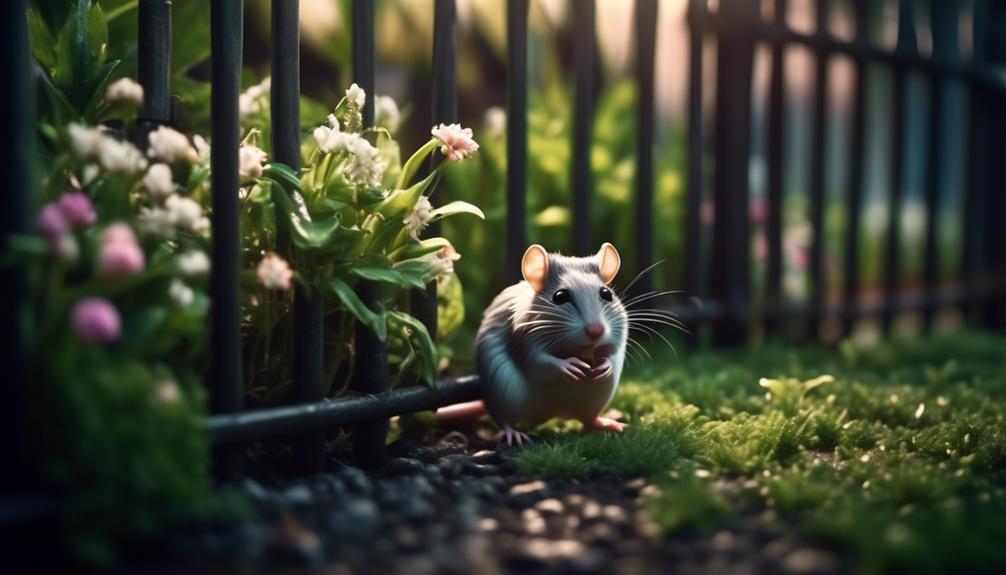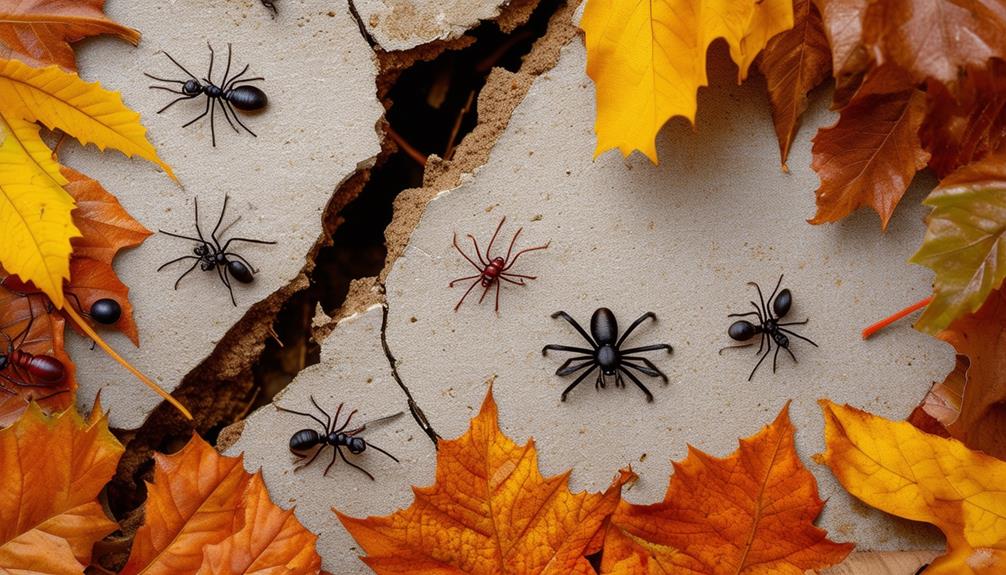Did you know that rodents can wreak havoc on your garden and outdoor spaces, causing damage to your precious plants and potentially spreading harmful pathogens?
If you want to protect your plants and maintain a healthy garden, it’s essential to implement effective rodent control methods. In this discussion, we will explore various techniques to keep rats, mice, and other rodents at bay.
One of the first steps in rodent control is rodent-proofing your garden. This involves sealing off any potential entry points, such as gaps in fences or walls, to prevent rodents from getting in. Additionally, you can use wire mesh or hardware cloth to cover any openings that rodents might be able to squeeze through.
Denying rodents access to food sources is another crucial aspect of rodent control. Make sure to keep your garden free from fallen fruits or vegetables, as these can attract rodents. Secure your garbage bins tightly and avoid leaving out pet food or bird feeders that could serve as a food source for rodents.
Eliminating potential shelters is also important in deterring rodents from your garden. Remove any piles of debris, wood, or vegetation that rodents could use as hiding places or nesting sites. Regularly trim shrubs and trees to minimize hiding spots.
Using wire mesh or hardware cloth can be an effective way to protect specific plants from rodent damage. You can create barriers around vulnerable plants or use cages to enclose them completely.
Finally, consider incorporating repellent plants into your garden. Certain plants, such as marigolds, mint, and lavender, are known to repel rodents. Planting these around your garden can help discourage rodents from approaching your plants.
By employing these strategies, you can safeguard your plants and create a thriving outdoor space. But that’s not all; there’s much more to discover!
Key Takeaways
- Seal potential entry points such as gaps in fences or walls to prevent rodents from accessing your garden.
- Keep your garden free of fallen fruits, seeds, and nuts to deny rodents a food source.
- Eliminate piles of debris, wood, or vegetation that can serve as shelters for rodents.
- Use wire mesh to protect raised beds from rodents and create a barrier that deters other garden pests.
Rodent-Proofing Your Garden
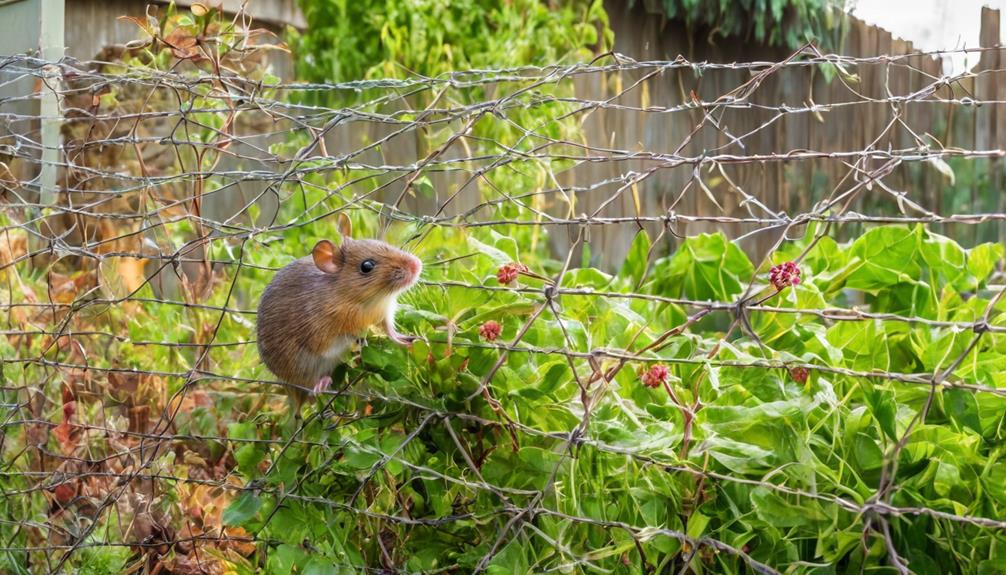
To effectively protect your garden from rodents, take proactive measures to ensure that your plants and seeds are shielded from their destructive behavior.
Start by using wire mesh to protect your raised beds and plant varieties like peppermint, lavender, and onions that repel rodents.
Additionally, consider starting seedlings indoors to prevent rodents from eating tender seeds. It’s also important to protect your compost pile by regularly turning it and spraying it down.
To eliminate prospective shelters for rodents, such as wood piles, maintain your vegetation and observe to identify specific rodents causing problems.
Installing fences with quarter-inch hardware cloth buried 18 inches below the ground can keep gophers and rabbits out.
Finally, consider using traps like the Victor TIN CAT Mouse Trap to capture and release rodents, or consult with a pest control expert for safe rodenticides and bait stations.
Taking these control methods will help ensure a rodent-free garden.
Denying the Food Source
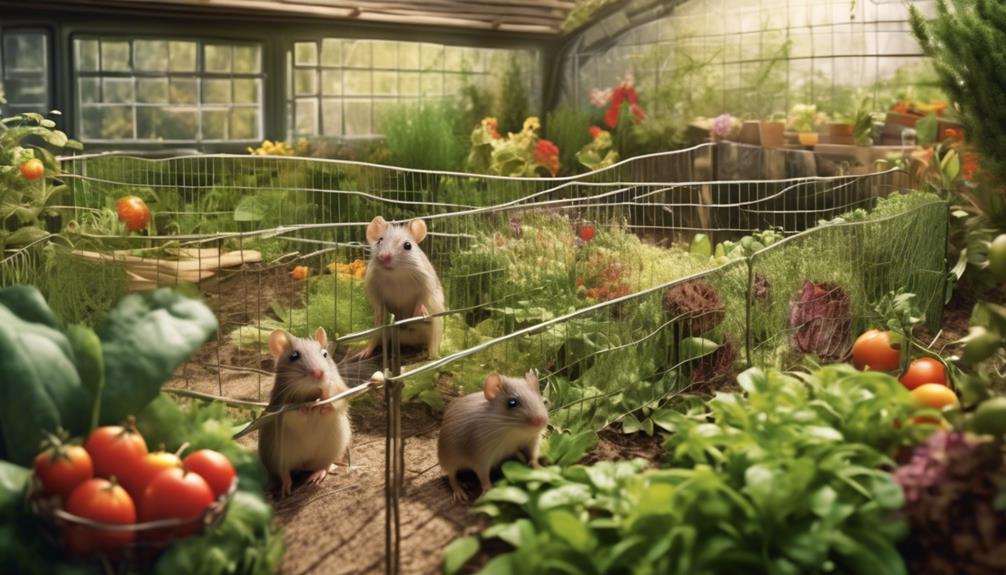
Minimize rodent access to food sources by keeping your garden free of fallen fruits, seeds, and nuts. Rats and mice are attracted to these food sources, so it’s important to clean up any fallen produce regularly.
Additionally, consider using mesh or wire to cover your garden beds to prevent rodents from accessing the fruits and vegetables. Fragrant flowers may attract rodents, so it’s best to keep them away from your garden area.
Wood piles can also attract rodents, so make sure to keep them at a distance from your garden. Lastly, check for any holes the size of a dime in your garden and seal them up, as they can provide entry points for rodents.
Eliminating Prospective Shelters
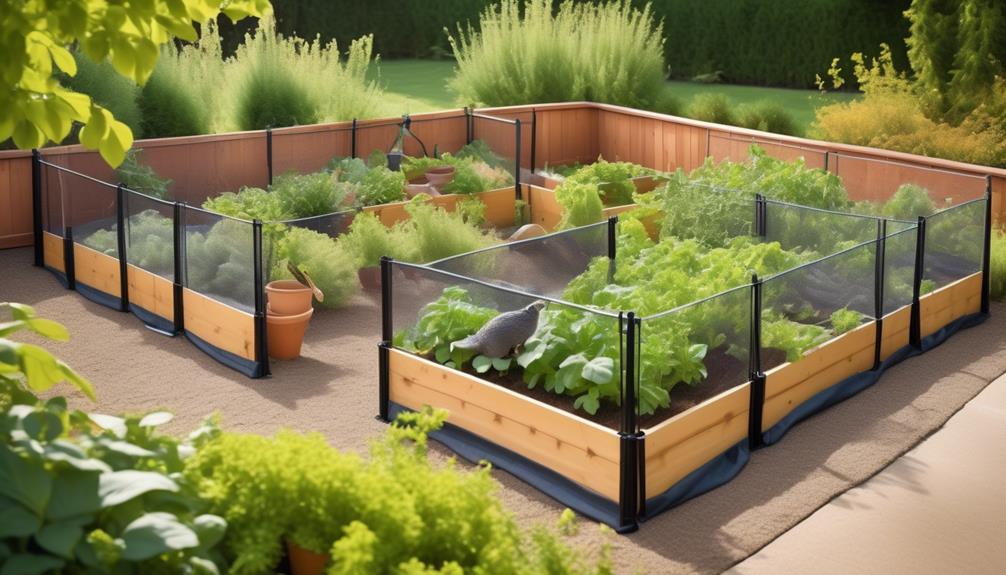
Maintain a rodent-free garden by eliminating prospective shelters, such as wood piles and overgrown vegetation. Clearing and moving wood piles regularly will remove potential hiding spots for rodents. Additionally, maintaining vegetation by cutting the grass and discarding spent plants will also help eliminate shelters.
Consider using chicken wire or plastic mesh to cover any openings or gaps that may provide access to rodents. Another option is to create a raised garden, as this can help repel rodents.
To further protect your garden, use rodent repellent and set up bait stations or mouse traps strategically. Remember to periodically check and reset the traps to ensure effectiveness.
Lastly, keep your garden area clean and free of debris to discourage rodent activity. By following these practices, you can create a welcoming garden space while repelling rodents.
Installing Wire Mesh for Raised Beds
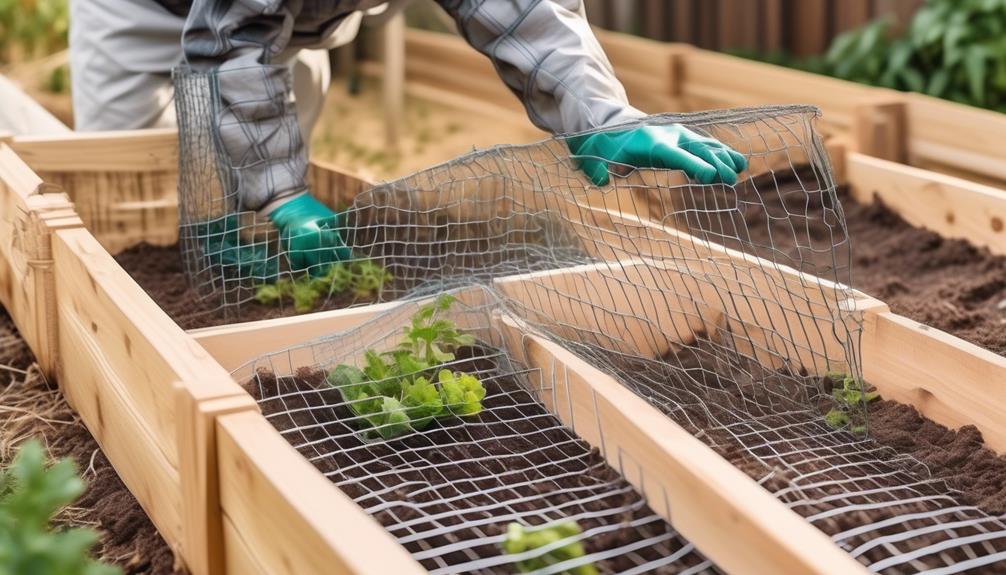
Consider using wire mesh to protect your raised beds from rodents.
Wire mesh is an effective solution for keeping out garden pests while allowing your plants to thrive. Rodents, such as mice, love to make homes in crawl spaces and can wreak havoc on your vegetable gardens.
By installing wire mesh around your raised beds, you create a barrier that prevents rodents from accessing your plants. This prevents them from feasting on your vegetables and reduces the risk of damage to your garden. Wire mesh also serves as a deterrent to other garden pests, such as birds of prey, which can help control rodent populations.
To further enhance your pest control efforts, you can also utilize live traps with a bait cup to catch and remove any rodents that do manage to find their way into your garden. With wire mesh in place, you can enjoy a thriving and pest-free garden.
Using Rat-Repellent Plants
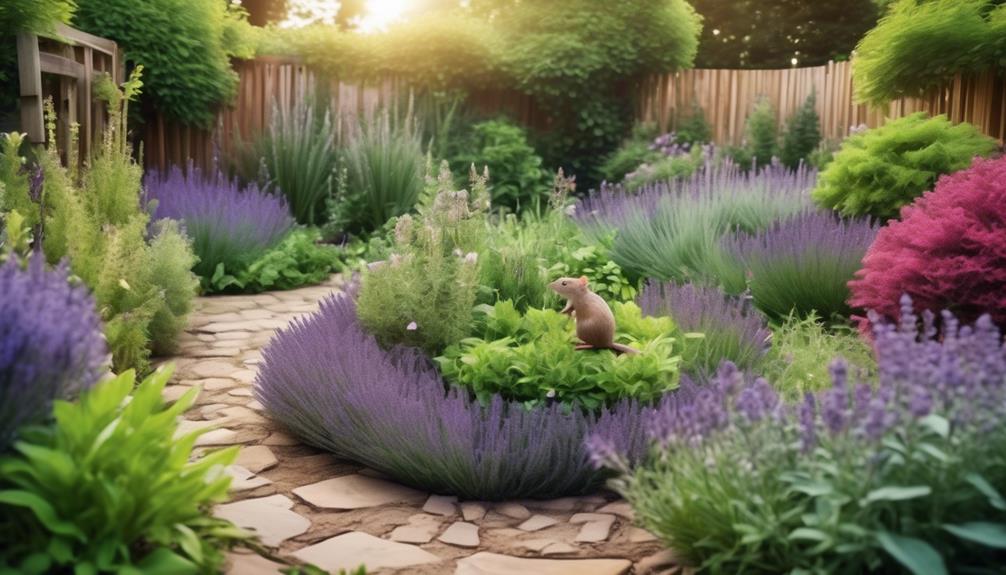
Using a variety of rat-repellent plants strategically in your garden can help create a natural barrier against rodents and protect your outdoor space. Plants such as peppermint, lavender, bay leaves, catnip, and onions emit scents that rodents find unpleasant and avoid. By incorporating these plants into your yard and garden, you can deter mice or rats from entering.
The key is to design your garden in a way that maximizes the effectiveness of these plants. Consider planting them around the perimeter of your garden or near areas where rodents may enter, such as tunnels or burrows. It’s important to choose weather-resistant plants that can withstand outdoor conditions. Additionally, be mindful of plants or flowers that may attract rodents, as this can counteract the repellent effect.
Keep in mind that while rat-repellent plants are generally safe for children and pets, it’s always a good idea to research and ensure they aren’t harmful if ingested. Using a combination of these plants can provide a multi-layered defense against small rodents in your yard and garden, helping to protect your plants and create a rodent-free outdoor space.
Frequently Asked Questions
How Do I Protect My Outdoor Plants From Rodents?
To protect your outdoor plants from rodents, try natural repellents, plant rodent-resistant plants, create physical barriers, use ultrasonic devices, implement scare tactics, attract natural predators, maintain garden hygiene, install motion-activated sprinklers, try homemade deterrent sprays, and consider professional pest control assistance.
What Can I Put Around My Plants to Keep Rodents Away?
To keep rodents away from your plants, try using natural repellents like peppermint or lavender. You can also create DIY barriers, plant rodent-resistant species, and attract natural predators. Proper garden maintenance is key.
How Do I Make My Garden Rodent Proof?
To make your garden rodent proof, use natural repellents like peppermint or lavender, create barriers with wire mesh, choose rodent resistant plants, maintain your garden properly, and consider DIY traps or sound devices for control.
What Is the Best Mouse Deterrent for Gardens?
The best mouse deterrent for gardens includes natural repellents, effective barriers, and plant-based deterrents. DIY rodent control, non-toxic options, and ultrasonic devices are also effective. Consider using rodent-resistant plant varieties and professional extermination for organic gardening solutions.


